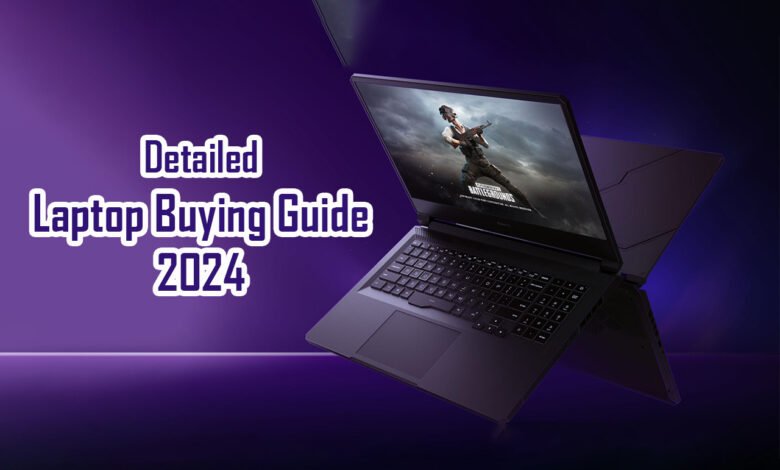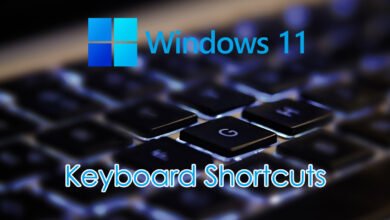Detailed Laptop Buying Guide 2024: The Ultimate Guide to Picking Your Perfect Laptop

Buying a laptop can feel like navigating a tech jungle—confusing and full of specifications that sound like mechanical language. But don’t fret; I’m here to assist you in discovering your path! This Detailed Laptop Buying Guide 2024 is loaded with recommendations that’ll save you from making a purchase you’ll regret. Ready? Let’s venture in!
Processor: Don’t Get Lost in the Labels
Don’t let sophisticated designations like i5, i7, or i9 trip you up. What really matters is the processor’s generation. For top-notch performance, browse for laptops with 12th or 13th generation processors. And if you’re into serious multitasking (like juggling 10 browser sites, 3 applications, and a video call), aspire for processors with the ‘H’ suffix, such as i5-1235U H. Think of it like selecting the sports model in a vehicle lineup—fast and designed to manage the heat!
- For basic tasks (streaming and online shopping), go for ‘P’ or ‘U’ suffix variants.
- These variants are like the hybrid vehicles of the processor world—efficient and reliable.
Storage: SSD is the Only Way to Go
Here’s a straightforward rule: SSD is your best companion, and HDD is like that old friend who never shows up on time. SSDs make your laptop:
- Speedier
- Quieter
- Just plain superior
If you can, go for generation four or five SSDs—they’re like the Teslas of the storage world: rapid and durable.
- Avoid loading up your storage space with unnecessary files if you want to maintain your laptop’s speed!
RAM: MHz Matters
RAM is your laptop’s multitasking superpower. If you want your laptop to handle multiple tasks like a pro, look for higher MHz ratings:
- Aim for 3200 MHz or 4800 MHz for better multitasking.
- Anything below 3200 MHz is a no-go.
Think of MHz as your laptop’s caffeine levels—the higher, the more energized and responsive it’ll be!
Graphics: Power Up if You’re a Gamer or Designer
If you’re into gaming or video editing, don’t settle for integrated graphics. You’ll need a dedicated graphics card to manage intensive tasks.
- Look for the TGP (Total Graphics Power) value.
- The higher the TGP, the better your laptop will handle graphics-heavy tasks.
Connectivity: Thunderbolt is King
Having the right adapter is crucial when connecting your laptop to other devices. That’s where the Thunderbolt connector comes in:
- Whether you’re connecting to an external display, storage, or graphics card, Thunderbolt handles it all.
It’s like the Swiss Army knife of laptop ports!
Display: Brightness is Key
Your laptop’s screen brightness can make or break your viewing experience. Look for:
- At least 300 nits of brightness.
- If you love binge-watching or gaming, an OLED display is a fantastic option.
Bonus Tip: Test your laptop screen with different wallpapers (white, green, black) to check for dead or stuck pixels.
Battery Health: For Used Laptops
When purchasing a used laptop, ensure the battery doesn’t die quickly. Here’s how to check:
- Use the command prompt to check the battery’s capacity.
- Avoid any laptop with a battery capacity below 50%.
Cooling: Keep It Chill
Good cooling is essential to prevent overheating during heavy tasks like gaming or video editing.
- If your laptop sounds like an airplane turbine, reconsider your choice.
Build Quality: Go for Durability
Opt for laptops with metal finishes. They’re more durable and provide better screen protection.
- Think of it as choosing a rugged phone case—you want something that’ll protect your laptop from accidents.
Upgradability: Future-Proof Your Purchase
Always check if you can upgrade your laptop’s:
- RAM
- Processor
- Graphics card
It’s like buying a house with room to expand—you may not need it now, but future you will appreciate it!
Physical Examination for Used Laptops
If you’re purchasing a used laptop, test everything:
- Keyboard
- Touchpad
- Connections
- Screen
- Webcam
- Ventilation
- Wi-Fi
- Bluetooth
- Speakers
It’s like test-driving a car—you don’t want to find out later that something doesn’t work!
FAQs
- What should I strive for in a laptop in 2024?
- Look for the latest generation processors, SSD storage, high-frequency RAM, dedicated graphics (if required), and at least one Thunderbolt port.
- Is SSD superior to HDD?
- Yes! SSD is faster, quieter, and more reliable than HDD. It’s the future of laptop storage.
- How crucial is the RAM’s MHz?
- Very! The higher the MHz, the better your laptop performs during multitasking. Aim for at least 3200 MHz.
- Why is a Thunderbolt interface so important?
- Thunderbolt interfaces offer versatile connectivity options for external displays, storage, and graphics devices. They’re like the Swiss Army knife of ports!
- How do I verify a used laptop’s battery health?
- Use the command prompt to verify the battery’s capacity. Avoid laptops with less than 50% capacity.
Conclusion
There you go! A Detailed Laptop Buying Guide for 2024 that’ll have you feeling like a laptop pro. Whether you’re looking for a new machine or considering a used one, these tips will ensure you get a laptop that suits your needs and budget.
Check out our 5 Key Points on How Safe Your WhatsApp Calls and Messages and Useful Microsoft Keyboard Shortcuts for Windows 11.
Happy hunting!




